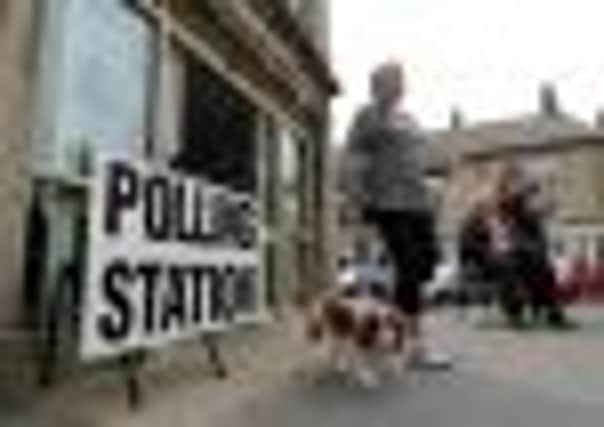Labour cautious on level of hoped-for victories


With the party only defending 1,600 of the 9,500 seats being contested nationwide, experts predicted possible gains of up 2,000 seats, and claimed anything fewer than 800 would result in Ed Miliband facing some difficult questions about his leadership.
With the Tories defending 5,000 seats and the Liberal Democrats battling to keep 1,800, Labour is expected to take control of many of the 279 authorities holding elections.
Advertisement
Hide AdAdvertisement
Hide AdWhen the same set of elected positions were last contested in May 2007, Labour, the then-governing party, was at a very low ebb and trailed the Tories by 13 percentage points.


David Cameron’s party gained more than 900 seats as Labour lost more than 500.
A reduction in the number of councils and seats means Labour probably needs nearer 400 gains to reverse those losses – taking it close to the 7.3 per cent Conservative 2010 General Election margin.
If it pushed the seats advance to 1,000 this would indicate a clear lead for the party.
Advertisement
Hide AdAdvertisement
Hide AdBut if the sweeping spending cuts generated enough Government unpopularity to take the gains total to 2,000, Labour could be ahead by about 20 per cent.
That would be in line with its last 1995 peak in the dying years of John Major’s Tory government.
The one crumb of comfort for Ministers in that nightmare scenario would be that in 123 of the 279 councils involved – including the 36 metropolitan authorities covering the big conurbations – only a third of the seats were at stake. And many of the councils where all the seats were up for election were in rural or small town areas where Labour is traditionally weak.
In more than 70 full council contests the two main contending parties were Tories and Lib Dems, such as Harrogate and Ryedale.
Advertisement
Hide AdAdvertisement
Hide AdIn some others, such as Richmondshire, the main challenge was from independents.
Much will depend on the size of the widely forecast Lib Dem seats slump. There are suggestions that it could top 1,000 losses – more than half the seats they are defending.
There is hope for the party that in the past, when in opposition, it has had much success in local elections. In council by-elections since the General Election it has just held its own, offsetting losses to Labour with gains from Tory coalition partners.
If Labour is ahead nationwide, it would have hopes of taking Sheffield – where Mr Clegg has his Commons seat – York and Hull, while establishing majorities in Leeds and Bradford, where the party currently leads a minority administration.
Advertisement
Hide AdAdvertisement
Hide AdThe party targeted Chesterfield – where it made a surprise General Election gain – from Liberal Democrats as well as Bolton and Oldham.
It would also have hopes of capturing Thurrock among the unitary authorities and Ipswich in the non-metropolitan districts.
Tory losses could include Walsall, one of the party’s few metropolitan authorities, and Gedling, in a Labour marginal constituency it failed to win in the General Election.
Other vulnerable Conservative districts include High Peak, Maidstone, Mid Suffolk, Rossendale and Stroud.
Advertisement
Hide AdAdvertisement
Hide AdThe party also faces losing North Devon to the Lib Dems but might in turn take Lewes from its coalition Government partners.
The Tories may gain Bath and North East Somerset from no overall control and Calderdale, where the party has the most seats but the council is run by a Labour and Lib Dem coalition.
Yesterday the political leaders were relaxed as they cast their votes.
Prime Minister David Cameron was voting in the Alternative Vote referendum and arrived in the rain at the Methodist Central Hall in Westminster, pausing briefly for waiting photographers.
Advertisement
Hide AdAdvertisement
Hide AdHe produced his paper from his suit pocket and announced; “I’ve got my card”, before going into the polling station.
Mr Clegg voted in the Stannington area of Sheffield just after 9am.
Mr Miliband accompanied his fiancee Justine Thornton to a polling station in north London as she cast her vote.
The Labour leader had already voted in the Doncaster Council election and the AV referendum by post.
The pair greeted supporters before leaving on foot.